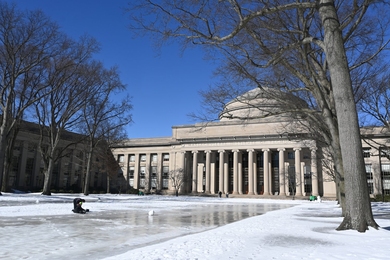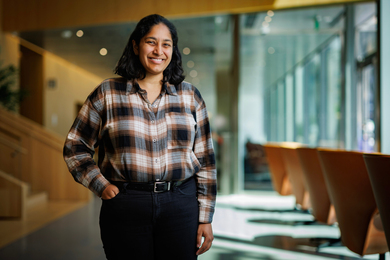The faculty officially approved Biological Engineering as Course 20 at its meeting on Wednesday, Feb. 15.
After the vote, the faculty heard Provost L. Rafael Reif discuss two new faculty committees that will focus on recruiting and retaining minority faculty members.
The Minority Faculty Recruitment Committee, co-chaired by Paula T. Hammond, associate professor of chemical engineering, and Akintunde Ibitayo Akinwande, professor of electrical engineering and computer science, and the Committee on the Retention of Minority Faculty, chaired by Wesley L. Harris, department head and professor of aeronautics and astronautics, will submit a report to the provost by May 1 and outline a work plan for the next academic year by Oct. 1.
"We want to attract the best faculty, learn who is doing a better job of attracting minority faculty, and once they are here, do a good job keeping them," Reif said. MIT currently has around 25 minority faculty members.
The committee devoted to retaining minority faculty will interview minority faculty, mentors and department heads about faculty development; assess best practices inside and outside MIT for retaining minority faculty and make recommendations about mentoring junior faculty; develop a system for reporting every year to the provost and Academic Council on the progress of minority faculty; and recommend changes that would help keep minority faculty at MIT.
Targeting undergraduates and graduate students who might pursue an academic career is one of the ways to keep an eye on and nurture up-and-coming talent, said Hammond.
"The bottom line is we are here to serve you to make MIT better," Harris told the faculty, noting that the "real test" will be whether faculty across the board feel strongly enough about increasing the numbers to make a concerted effort to hire and keep more minority faculty.
The recruitment committee will catalog successful approaches to faculty recruitment at MIT and elsewhere; advise the administration and Faculty Diversity Council; talk to minority graduate students about their concerns about an academic career; find out why minority candidates who turned down jobs at MIT did so; and consider the Martin Luther King Jr. and other visiting professors programs as recruiting opportunities.
Chancellor Phillip L. Clay pointed out that a discussion of life in the Boston metropolitan area needs to be included in efforts to lure minority faculty to MIT, and that potential faculty will need to see that this is an attractive area in which to settle down.
A version of this article appeared in MIT Tech Talk on March 1, 2006 (download PDF).





